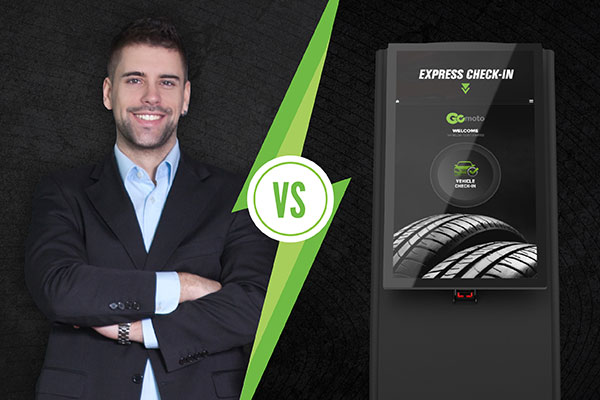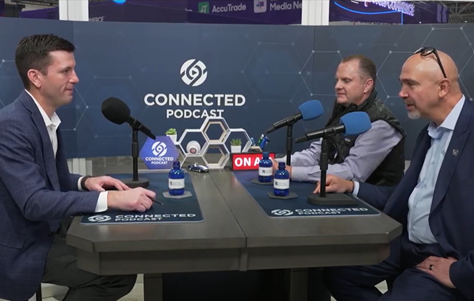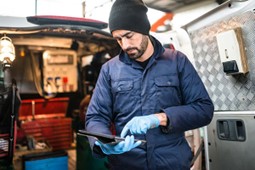How Kiosks Affect Service Advisors

Article Highlights:
- Kiosks can handle the greeting process.
- Let the advisor focus on their strengths.
Now more than ever, the role of the service advisor is to sell additional services. Previously, this started at the greeting while advisors formed a relationship with the customer. However, as social norms now demand fewer face-to-face interactions, dealers need a way to effectively handle the greeting and check-in while still providing additional buying opportunities for the customer. Like so many times in the past, technology is filling the gap. This time, it’s in the form of self-led service kiosks. With kiosks, customers can:
- Check in for a service appointment
- Update their contact information
- Choose the reason(s) for their visit
- Select additional factory recommended maintenance
- Review potential recalls
- Request a trade-in appraisal
While the kiosk handles these tasks for the customer, the advisor can focus on fulfilling other profit-producing tasks at your store and catering to the rest of the crowd. Some of these advisor tasks may include:
Interacting with waiting customers. When it comes to your customer base, you want to appeal to a wide variety of customer expectations. Having a kiosk will be helpful for attracting tech-savvy customers or customers who want to distance themselves, but there will always be some people who prefer face-to-face communication.
Following-up on recommendations or inquiries. Advisors are necessary for more than the first step of the repair process. While the kiosk can handle the greeting; follow-up communications, selling recommendations, and promoting an appropriate sense of urgency is where your trusted advisor should step in. In addition, if the customer initially declines recommendations on the kiosk, your skilled advisor can make a second attempt. Customers will still ask questions about services or other general inquiries. The advisor will have more free time to follow-up so customers aren’t waiting as long for a reply.
Building relationships. Although kiosks are modern, and bring an elite feel to your service drive, advisors ultimately have the relationship-building conversations with your customers. Even if customers don’t want a face-to-face interaction at your store, it is still good to have a phone call or text message conversation with customers to humanize the dealership.
During peak hours, kiosks provide crucial assistance to advisors and shorten wait times. Kiosks also help your dealership look and feel modern, while providing a customer experience similar to what they encounter in other retail and service channels.
Kiosks and advisors both have their strengths, and ultimately the perfect service department should have both.
Related Articles:
Earlier this year, I had the privilege of diving into a conversation with Ed Roberts, COO of Bozard Ford, and what struck me was how…
Key drop-off is one of the first impressions a customer has of your service drive. Both you and your customer want it to be as…
We live in an era where a simple tap on your phone can bring almost anything to your doorstep within hours. According to Statista, in…
Here in the North, we face the dreaded winter months. They’re full of stuffy noses, sore throats, and endless coughs. Although sicknesses like the flu…



















